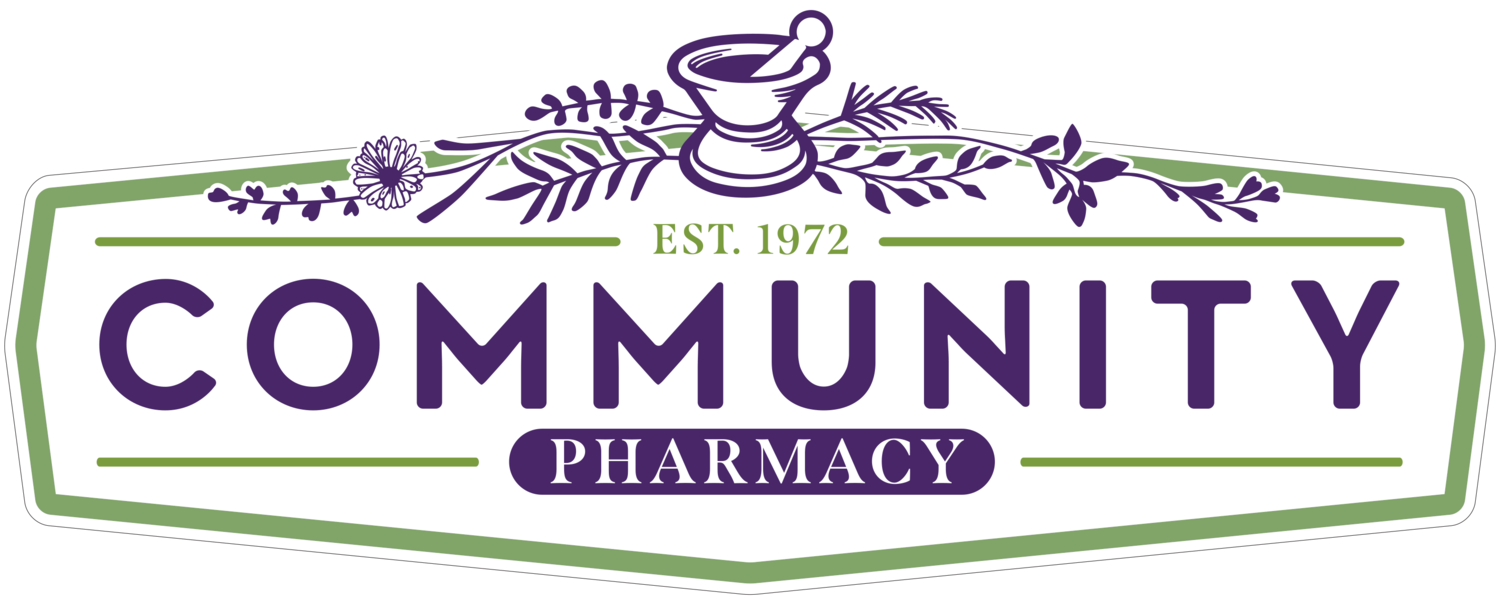Breathe Easy with DIY Herbal Steams
By Amy Baker
Herbal steams are wonderful tools to help support the immune system and reduce symptoms that accompany upper respiratory infections. They are inexpensive, safe and effective, and a snap to put together with only a few supplies. When steeping plant material to create an herbal steam, you are releasing the plant’s beneficial compounds and inhaling them with water vapor. Both the plants’ aromatic oils and the steam soothe irritated nasal passages and loosen mucus build up in the sinuses and lungs. Essential oils can be added as well, with care. Try making a steam with herbs from your own kitchen, or visit Community Pharmacy or Community Wellness Shop where you’ll find a wide variety of organic essential oils as well as dried herbs available by the ounce.
HOW TO MAKE AN HERBAL STEAM
You will need:
✓ medium-size bowl
✓ bath towel
✓ 1 quart boiling water
✓ 1 ½ - 2 cups of dried herbs (see suggestions below)
✓ 2 -3 drops of essential oil (see suggestions below)
✓ tissues or handkerchief
Instructions
Choose a location to do your steam (good options: seated at the kitchen table or standing at counter of comfortable height).
Fill bowl with herbs.
Pour boiling water over herbs.
Add a few drops of essential oils, if using.
Position head over the bowl (use your discretion on distance to avoid burns from steam) and drape towel over your head to form a tent that will hold the steam.
Close eyes to prevent irritation, especially if using essential oils.
Inhale deeply. Adjust head and towel as needed, making sure things don’t get too hot and cause a burn. Continue for 10 minutes, coughing and blowing your nose as necessary while mucus loosens.
Cover the bowl with a plate or pan lid when finished. These same herbs can be revived a few times during the day (they will be somewhat less potent, but still effective). Just re-heat in a covered pan and pour everything back into the bowl when you're ready to steam again. You may choose to add a drop or two of fresh essential oil or a few tablespoons of additional herbs each time.
Repeat every 2-3 hours or as needed throughout the day.
10 Herbs for Steam Inhalation
Oregano ------ acts as an expectorant, antiviral
Thyme ------ acts as an expectorant, antibacterial
Rosemary ------ helps relieve stagnant congestion in sinuses and lungs
Mullein leaf ------ relaxes lungs and alleviates dry cough
Eucalyptus ------ helps loosen mucus
Chamomile------ helps calm coughs
Yarrow ------ reduces swelling of membranes and helps dry excess mucus
Sage ------ helps tighten and calm tissues, especially in the throat
Ginger ------ helps relieve congestion, expectorant
Lavender------ relaxes tense nerves, antibacterial
10 Essential Oils for Steam Inhalation
Cedar ------ lymphatic decongestant
Tea Tree ------ antibacterial, antiviral, immune stimulant
Juniper------ anti-spasmodic, anti-inflammatory
Rosemary------ antibacterial, expectorant
Peppermint------- antibacterial, antiviral, anti-inflammatory
Eucalyptus ------ antiviral, antibacterial, immune stimulant, expectorant
Ravintsara------ antiviral, antibacterial, immune stimulant, expectorant
Cyprus, Fir and Pine antiseptic, excellent for coughs and congestion.
Amy Baker is a gardener, teacher, wildcrafter, herb enthusiast and an award-winning writer. She has studied herbal medicine with various teachers in Chicago and Madison, and earned her certification as a Culinary Nutrition Expert and Instructor through the Academy of Culinary Nutrition. Amy has enjoyed creating plant medicines, natural beauty and cleaning products, and all manner of tasty, nutritious, healing recipes for decades.

